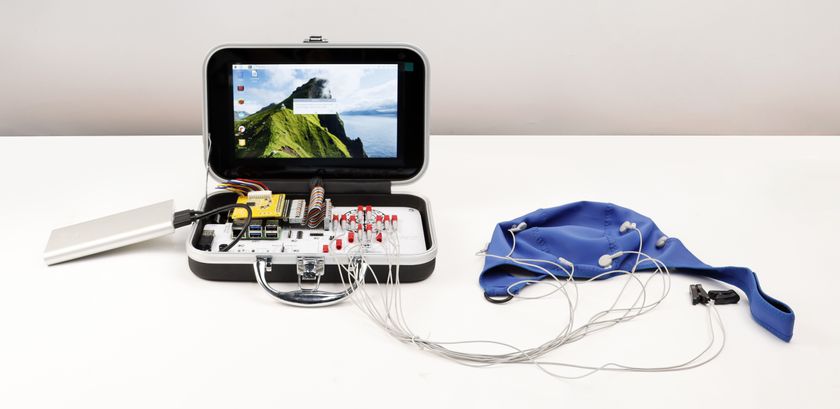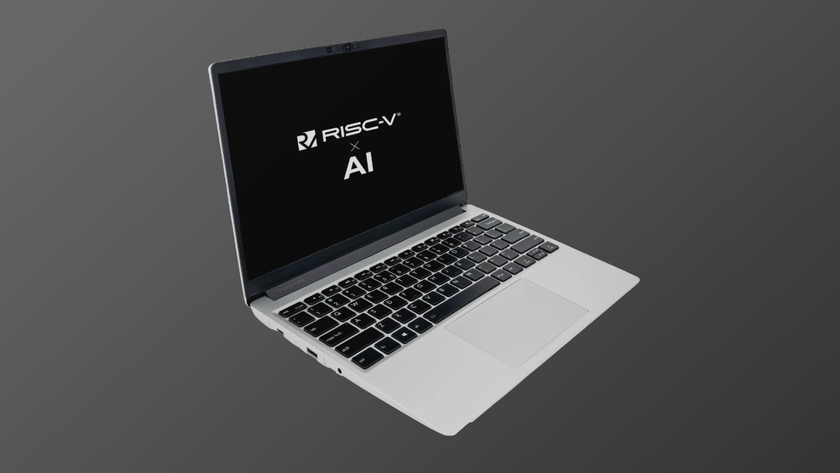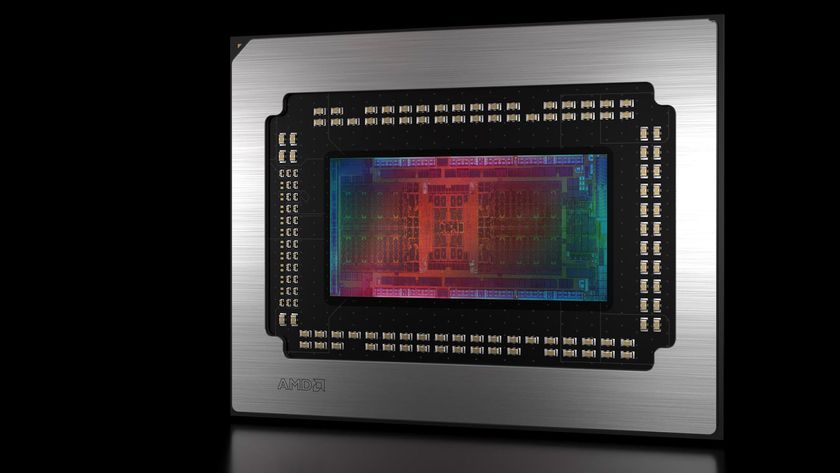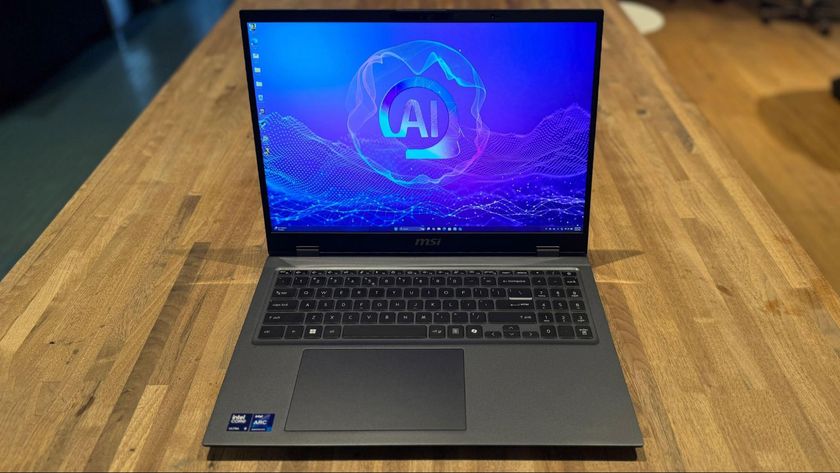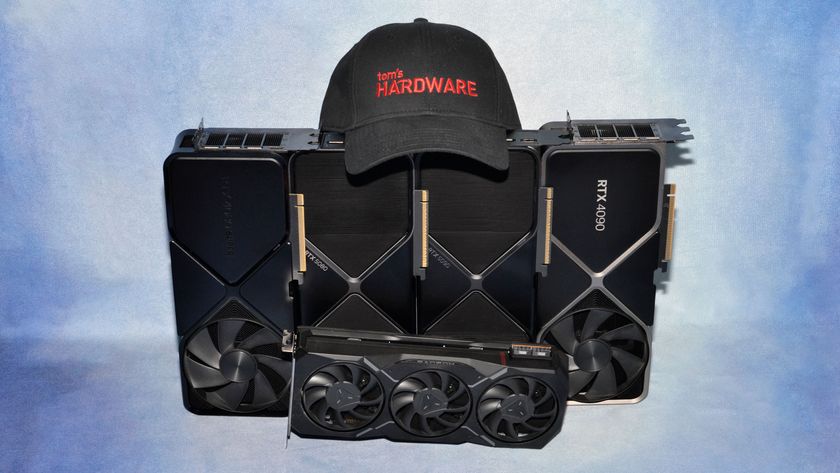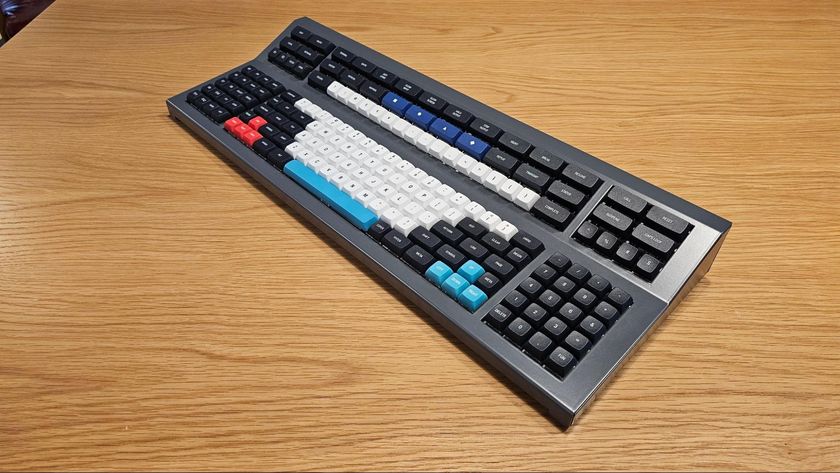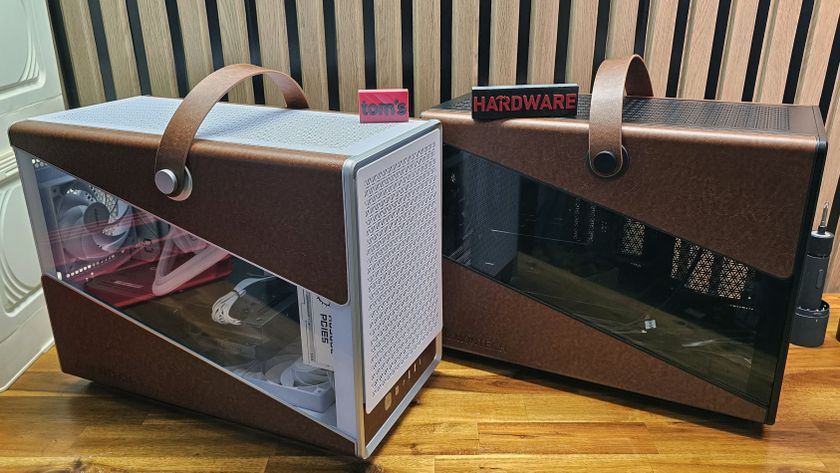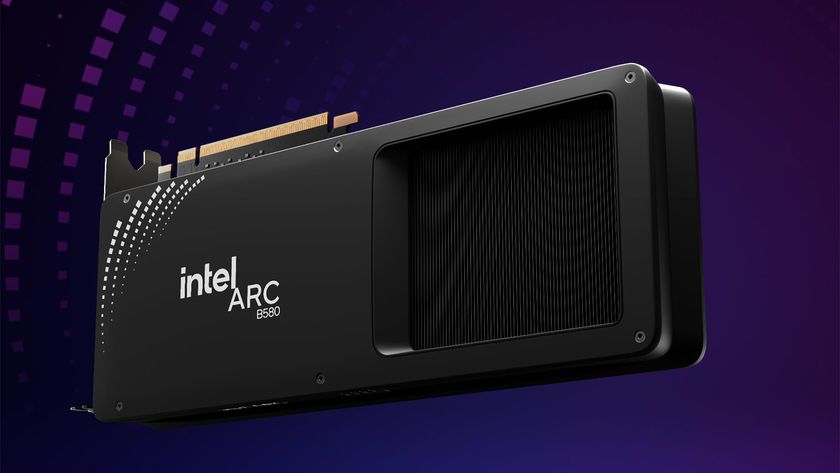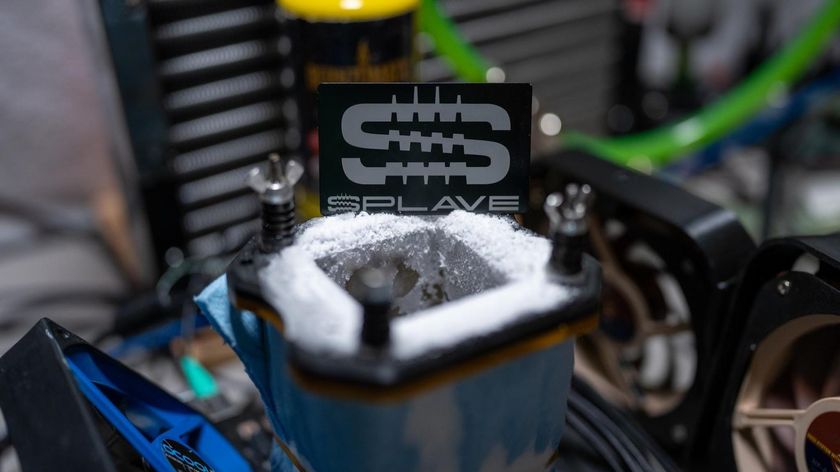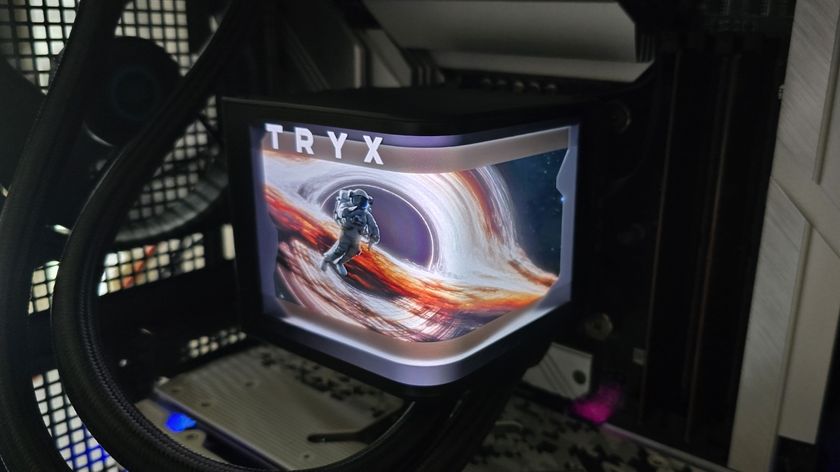High-End P67 Express: Five $200-250 Motherboards
With mainstream boards based on Intel's P67 Express chipset now priced well beyond $150, we reached into the $200-250 range to see what kinds of enhancements high-end buyers could expect just ahead of the anticipated Z68 Express launch.
ASRock P67 Extreme6
Those less interested in Fatal1ty branding might prefer ASRock’s P67 Extreme6, a design that includes many of the features from its gamer-centric counterpart, yet strangely uses a completely different circuit board.
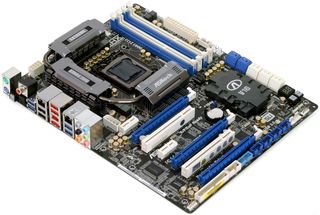
Extreme6 buyers still get four external and eight internal USB 2.0 ports, four external and two internal USB 3.0 ports, four SATA 3Gb/s, six SATA 6Gb/, and dual gigabit network ports. One of the internal SATA 6Gb/s ports is still shared with eSATA, and even the x16-length graphics card slots are carried over with x16-x0-x4 and x8-x8-x4 transfer capabilities.
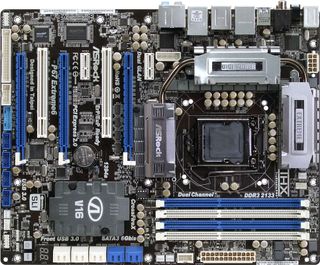
The P67 Extreme6 is similarly blessed with an eighteen-phase voltage regulator and similarly cursed with front-panel audio and front-panel USB 3.0 connectors placed far too distant from the ports of most enthusiast-oriented cases. So, aside from the price, what’s different?
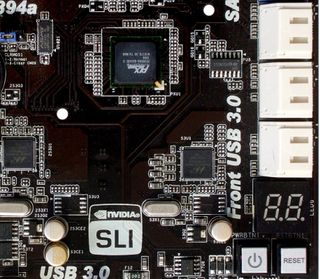
The P67 Extreme6 eliminates the added-cost Ultra ATA controller, but keeps the cable connector for the ubiquitous floppy controller. The Extreme6 also uses a less expensive and far lighter heatpipe, covers the PLX PCIe 2.0 bridge with a die-cast shell that appears to be magnesium, and employs two-sided (rather than single-sided) clips on its memory slots.
A few other things that both boards have in common are onboard power and reset buttons, a port address 80 diagnostics display, rear-panel CLR_CMOS buttons, and a single, socketed BIOS. The lack of that last feature will come back to hurt one of ASRock’s competitors in this very review.
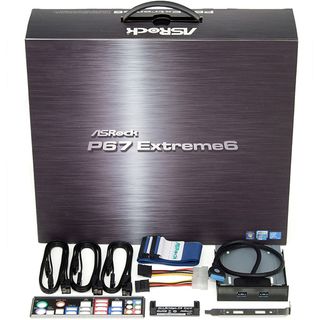
The P67 Extreme6 lacks only the Ultra ATA cable compared to the P67 Professional, since this particular motherboard doesn't include that controller anyway. Builders must still purchase their SATA cables separately if they want to use more than three drives.
Stay On the Cutting Edge: Get the Tom's Hardware Newsletter
Get Tom's Hardware's best news and in-depth reviews, straight to your inbox.
-
joytech22 So glad I grabbed my P8P67 Deluxe!Reply
It had all the features I was looking for at a low enough price to make it very appealing. -
Crashman rolli59Nice article would have been nice to have a Gigabyte board in there as well.Please tell Gigabyte to produce something for this market!Reply
Tom's Hardware included the UD4 in its $150-200 motherboard roundup, and the UD5 costs more than $250. -
Manos How te hell is it possible that a website like this keeps ignoring my question as in WHY its been for so many months if not year or whatever, that they dont fix this *** and I cant click to submit my comment from IE? How can THIS be the only website with issues with IE? I find it rather sad. Its why i quit commenting instead of being forced to open a different browser for this site which I used to love and respect. Till they started ignoring this issue Ive been pointing out ( and not just me ).Reply
Thank you for the charts tho id love to see one with Maximus IV included x.x ( I edited cause I asked something stupid as in why I dont see it in the chart. Sorry.. Been working all night and no time to read the article. Bits only.And no I obviously hadnt read the title x.x My bad. Happy Easter! -
jerreddredd It would have been nice to see if there is a performance gain in these "high end" boards over a value P67 board.Reply
For an even better article also throw in one of each value rated H67 and H61 boards. ($240 vs $130 vs $70 boards)
-
alidan jerreddreddIt would have been nice to see if there is a performance gain in these "high end" boards over a value P67 board. For an even better article also throw in one of each value rated H67 and H61 boards. ($240 vs $130 vs $70 boards)this, i would love to see how the high end stacks up with the low end. the low may not have as much as the high end, but performance is really all that matters considering we can just get expansion cards for things we dont have.Reply -
Hupiscratch Great article. Now it´s time for the high-end overclocking oriented boards, like the ASUS Maximus IV Extreme.Reply -
memadmax I'm gonna go all out on this chipset when it matures a bit. A cool 5 grand i'm thinking for my next gen build.Reply


